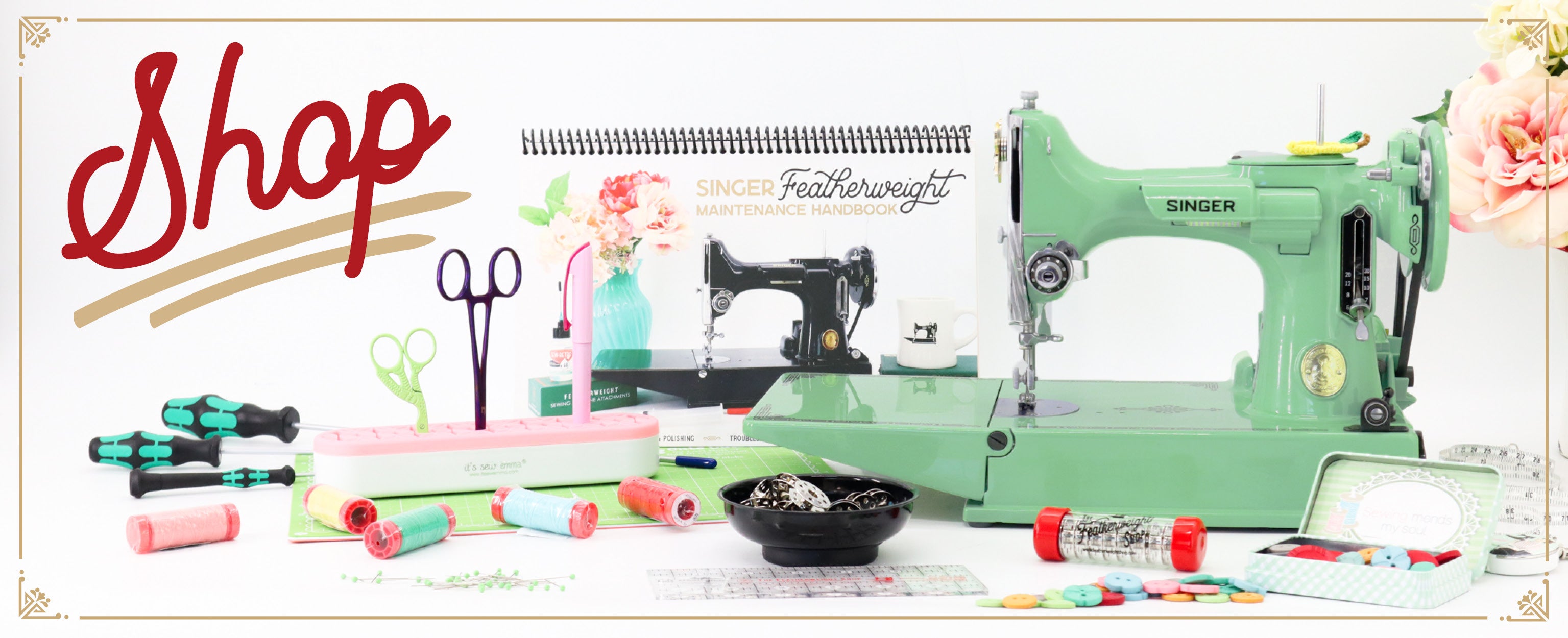Restore Along Part 2: Stripping Down Tulip
Welcome to Restore Along Part 2: Stripping Down Tulip. Julia has done an incredible job in documenting each step she has taken in the restoration process, and we are happy to share her story! If you are just joining us, you can catch up on the last installment of our Restore Along here:
Restore Along Part 1: Introduction of Julia and Tulip
As many of you may recall, Tulip is the poor little Featherweight that Julia and her husband, Mark, rescued from an antique shop down in Kentucky. Julia's Featherweight is named Tulip, after the state tree, the Tulip Poplar. Today's Restore Along focuses on Julia stripping down Tulip and identifying the work that needs to be done. Let's begin!
*FEATHERWEIGHT SHOP DISCLAIMER: This Restore Along of Featherweight restoration was a personal journey for the owner, Julia. The products used and steps taken are not specifically endorsed or recommended by the Featherweight Shop. However, we wanted to share her story for others to enjoy and follow along as she dismantles and learns about her Featherweight machine. ("Tulip" was not starting out as an average Featherweight that just needed cleaned and polished; rather, it will be a complete DIY restore.) Nevertheless, it is still important for us to advise using extreme caution with any detergents or products on your own personal Featherweight.
After determining that the machine's clearcoat was completely compromised and in need of repainting, the first step Julia took was to wash Tulip down with some Dawn dishwashing detergent*. Cleaning off the grime confirmed just how compromised Tulip's clearcoat had become. Now Julia gets to decide what color! (Candy apple red, by chance?)

Next, Julia removed all the parts on Tulip. In her own words, "If you want to get up close and personal with your Featherweight, and really want to get to know her, strip her down!" As you all are aware, keeping track of the parts, and where they all go can be a chore. This was Julia's first time stripping down a Featherweight to bare bones, so she took meticulous notes to put her back together again.
Click here for more information on identifying parts on your Featherweight.
As a side note from Julia, "I'm thankful my husband supports me in my endeavors. He was able to get a few of the screws out that were really stuck. He also taught me how to use a swedge (a word I would have challenged in Scrabble!) to get bushings out. How sweet is that? Restoring a Featherweight is a team effort - from the research that is done online, to the Featherweight groups and the support that you get at home!"

Needle bar screw location

Tapping out the needle bar bushing using Mark's homemade "swedge" tool.

Julia used the needle bar clamp to help rotate the needle bar out.

A look under the throat plate (not too dirty, especially considering the condition of the rest of Tulip).
Learn more about the History of the Singer Featherweight Needle Plate here.

Hook Assembly

Back of hook assembly - showing the gib hook, loop guard and assembly unit.

Sliding the rotating hook shaft out

Dirty hook-shaft, counter-balance and gear

Cleaned hook shaft parts - after hand cleaning with water and baking soda mixture*.

Hook Assembly, Gib Hook, Bobbin Case Base and Gib Hook Screw (R) looking cleaner after the baking soda & water mixture*.

Thank you for joining us for Part 2 of Tulip's makeover.
Every Wednesday we will release a new part in Tulip's restoration journey.



